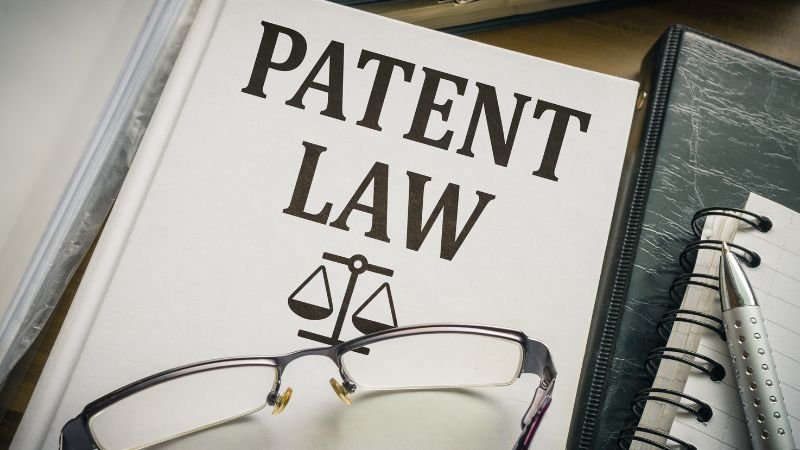A Patent Agent in India is a registered professional authorized by the Indian Patent Office (Office of the Controller General of Patents, Designs & Trade Marks) to represent inventors or applicants in matters relating to patents. They combine technical knowledge and legal know-how to prepare, file, prosecute, and manage patent applications on behalf of clients.
They act as a bridge between innovation and legal protection, helping inventors navigate the complex procedures under the Indian Patents Act and Rules. In this guide, I’ll draw on my experience and the latest legal provisions to walk you through everything you need to know about being or engaging a patent agent in India — eligibility, roles, process, rights, challenges, best practices, and more.
Legal Basis & Definition
In India, the profession of patent agents is governed by the Patents Act, 1970 and associated Patent Rules, 2003 (and later amendments). Key statutory sections include Sections 125–131 of the Act.
Section 125: Establishes the Register of Patent Agents maintained by the Controller.
Section 126: Lays down the qualifications for registration as a patent agent.
Section 127: Grants the rights of patent agents (i.e. what they are permitted to do) before the Patent Office.
Section 128–131: Deal with verification, restrictions, removal from register, and other procedural norms.
Thus, a “Patent Agent” in India is not just a title — it is a statutory status: unless registered, a person cannot legally represent others in patent matters before the Indian Patent Office (except self-representation by the inventor).
Eligibility & Qualifications
Before you aspire to become a patent agent, you must meet certain legal requirements. Here’s a breakdown of eligibility, with nuances and practical notes:
| Criterion | Requirement / Rule | Notes / Practical Implications |
|---|---|---|
| Citizenship | Must be an Indian citizen | Only citizens can register. |
| Age | At least 21 years old | The statute mandates a minimum age. |
| Educational Degree | A degree in Science, Engineering, or Technology (or equivalent) | This ensures the technical grounding needed for drafting and prosecuting inventions. |
| Exam / Experience Route | Must pass the Patent Agent Examination, OR in some cases, have served as a patent examiner or as Controller under Section 73 for ≥ 10 years (and no longer hold that post) | This is an alternate route for experienced administrative officers. |
| Final Year Students | Sometimes allowed, provided they submit full degree within a fixed time | Some exam notices permit final year students to apply. |
Important practical note: Simply having a science or engineering degree is not sufficient — you must satisfy the statutory requirements and pass the qualifying exam or alternative route. Also, your degree must be from a recognized institution.
Patent Agent Examination — Structure & Passing Criteria
To become a registered patent agent (unless via the experience route), you must clear a multi-stage examination conducted by the Patent Office. Here’s how it works in detail:
Exam Structure
Paper I – Patent Act & Rules (100 marks)
Objective + descriptive questions
Covers the Patents Act, Rules, legal procedural issues
Paper II – Drafting, Interpretation & Specification (100 marks)
Descriptive drafting and explicative interpretation of patent documents
Focus on claims, specification, amendments, etc.
Viva-Voce (Oral Interview) – 50 marks
Usually held for candidates who clear the written papers
Tests practical knowledge, clarity, legal-technical thinking
Total marks = 250 (100 + 100 + 50)
Passing / Qualifying Criteria
Must secure at least 50 marks in each of Paper I and Paper II.
Overall aggregate ≥ 60% across all papers (including viva) to be declared successful.
There is some variation historically in the weight given to viva and whether a minimum in viva is mandatory; courts have struck down certain rigid rule requirements in past judgments.
Once you pass, you become eligible to apply for registration in the Register of Patent Agents.
Registration Process & Fee
After clearing the exam, the next crucial step is to formally register yourself as a Patent Agent. Here’s the full procedure:
Steps in Registration
Apply via E-Agent Portal
Use the online portal of IP India (eAgent filing) to submit your registration application.
Log in / register, fill your details, upload documents.
Documentation
Proof of age (birth certificate, school certificate, passport, etc.)
Degree certificate / provisional degree + declaration (if provisional)
Proof of Indian citizenship (passport, voter ID, etc., or affidavit)
Character certificate from a gazetted officer
Exam pass certificate / mark sheets
Any other supporting documents (ID, address proof)
Fee Payment
Pay prescribed registration fees (for individuals).
As per some sources, the fee is around ₹3,500 for individuals (but always check the latest schedule).
Grant of Registration & Patent Agent Number
On verification, Controller grants registration and assigns a Patent Agent Number
Your name is entered into the Register of Patent Agents, which is publicly accessible via the IP India portal.
Notification / Formalities
You may need to sign a declaration, subscribe to verification norms
Notify the Controller of change in address, etc.
Important: Registration is not expired annually, but the agent must ensure compliance, e.g. timely address updates, paying any continuation fees (if applicable), avoiding default in fee payment. The Controller has power to remove names for misconduct.
Roles, Duties & Scope of Work
Once registered, a patent agent is empowered with a variety of functions under law. Let me walk you through in detail, from my practical experience and statutory backing.
Core Roles & Responsibilities
Drafting Patent Applications and Specifications
Prepare full specifications, claims, abstracts, drawings, amendments
Craft claims that maximize protection while minimizing rejection risk
Filing & Prosecution
File applications (provisional, complete) with the Patent Office
Respond to Examination Reports, raising arguments or making amendments
Conduct hearings / personal appearances before the Controller of Patents
File oppositions, appeals, revocations as permitted under the Act
Advisory & Consultation
Perform patentability / novelty / prior art searches
Advise on freedom to operate (FTO) and infringement risk
Patent strategy: national vs PCT route, territorial scope, licensing
Maintenance & Post-grant Actions
Handle renewal (annual / term) fees
Assist in restoration / revival of lapsed patents
Handle assignments, licensing, monetization
Recordkeeping, Verification & Declarations
Sign verification pages, declarations under oath, affidavits
Maintain confidentiality, ethics, client communications
Liaison with Patent Office
Communicate with examiners/controllers
Submit formal forms, notices, procedural compliances
Statutory Rights & Restrictions
Under Section 127, a registered patent agent is entitled to “practice before the Controller,” prepare documents, transact business, etc.
Under Section 129, restrictions are imposed:
Only individuals registered (or firms all of whose partners are registered) can hold out as patent agents
No body corporate / company can act or describe itself as a patent agent
No unregistered person may practice or represent others in patent matters.
The Controller has authority to remove or suspend a patent agent’s name from the register for misconduct or default, after following due procedure.
Thus, the work scope is quite broad: from drafting to prosecution to strategy, but confined by serious professional and statutory obligations.
Advantages, Challenges & Best Practices
Advantages (Why hire or be a good patent agent?)
Technical + Legal Edge: Patent agents with technical backgrounds can understand innovations deeply and translate them legally
Cost & Time Efficiency: Clients save time and avoid procedural pitfalls
Increased Grant Probability: Well-drafted applications and professional handling reduce rejections
Advisory Value: Strategic IP planning, licensing, monitoring
Diverse Opportunities: Work in law firms, corporate R&D, startups, IP consultancies, or as independent practitioner
Challenges (What to watch out for?)
High Competition: Many technically capable people aim for this role
Staying Updated: Patent law evolves (amendments, jurisprudence)
Quality of Drafting: A weak specification or claims can doom protection
Ethical Risks: Confidentiality, conflict of interest, misrepresentations
No Court Representation: Patent agents cannot litigate in courts — for that you need a qualified patent attorney / advocate
Best Practices (from experience)
Master the statutes + latest case law — don’t rely only on old textbooks
Hands-on drafting practice: mimic real inventions
Network with examiners and peers (ethically) to learn procedural insights
Maintain a database of prior art / patent literature
Regular continuing learning: attend seminars, read journals
Transparent communication with clients: explain risks, chances, timelines
Stringent checks / peer reviews on your draft work
Ethics first: always protect client secrecy, avoid exaggeration
How to Choose a Patent Agent (If you’re a Client)
If you are an inventor or company looking to hire a patent agent, here are key considerations:
Technical alignment: The agent should have experience in your technological domain
Track record & success history: Check granted patents, rejections handled
Communication & clarity: Ability to explain in simple language
Fee transparency: Clear breakdown (drafting, office fees, hearings)
Ethics and trust: Ask for confidentiality agreements
Location / Reach: While many agents operate remotely, local presence helps during hearings
Accessibility: Will they respond promptly?
Comparison: Patent Agent vs Patent Attorney / Advocate
In India, sometimes people confuse “Patent Agent” and “Patent Attorney (or Advocate)”. Here’s a clear distinction:
| Feature | Patent Agent | Patent Attorney / Advocate |
|---|---|---|
| Legal status | Statutory registration under Patents Act | Licensed advocate / lawyer status |
| Court representation | Cannot represent parties in courts | Can represent clients in courts / litigation |
| Focus | Prosecution, drafting, patent matters | Litigation, enforcement, appeals, infringement cases |
| Qualification | Technical degree + agent exam | Law degree + bar admission (plus technical knowledge preferred) |
| Role overlap | Pre-grant, post-grant, advisory | Enforce patents, litigate, cross-border disputes |
A strong collaboration between a patent agent (for drafting & prosecution) and a patent attorney (for litigation) often yields the best outcomes.
Common Pitfalls & Mistakes to Avoid
Missing deadlines (responses, renewals)
Improper or weak claim drafting (too broad/too narrow)
Ignoring prior art or inadequate search
Not making required legal verifications / declarations
Poor communication with clients (leading to mismatched expectations)
Being unaware of law changes (e.g. amendment acts, recent case law)
Disclosing client inventions prematurely — breach of confidentiality
Future Trends & Opportunities
Growth of IP in India: More innovations, more focus on intellectual property — demand for skilled patent agents will increase
International filings / PCT: Agents with knowledge of the PCT route, foreign patents will be in demand
AI & Patent Analytics: Use of AI for prior art search, claim suggestions will augment the profession
Specialization: Niche domains like biotech, software patents, and nanotechnology will require domain-specialist agents
Collaboration with law firms & global IP firms: cross-border prosecution, IP strategies
Roles of the Indian Patent Office (IPO)
The Indian Patent Office (IPO), under the Controller General of Patents, Designs & Trade Marks (CGPDTM), is the governing body responsible for the registration, regulation, and oversight of patent agents in India.
Administrative Oversight
The IPO maintains the official Register of Patent Agents, which includes:
Name, address, and registration number of each agent.
Date of registration and any suspension/renewal history.
Disciplinary records (if applicable).
This register is public and available through the official IP India website. Patent agents are expected to update their information regularly — especially any changes in address or contact details.
Compliance & Disciplinary Role
The Controller of Patents can take disciplinary action under Sections 130 and 131 of the Patents Act in cases of:
Professional misconduct or unethical practices.
False declarations or misrepresentations in filings.
Non-payment of prescribed fees.
Failure to maintain confidentiality or client integrity.
Disciplinary actions may include suspension, removal from the register, or other penalties after due notice and inquiry.
Collaboration & Support
The IPO also provides various resources to help patent agents remain updated:
Notifications and circulars on procedural changes.
Annual Patent Agent Examination notices.
Workshops and training sessions for continuing professional education.
Being registered with IPO is not just about authorization — it signifies trust, competence, and professional accountability in the intellectual property ecosystem.
Fees and Cost Structure of Patent Agent Services
While costs vary widely depending on complexity and scope, here’s a practical breakdown of the standard patent agent service fees in India (approximate ranges):
| Service Type | Description | Approximate Fee (₹) |
|---|---|---|
| Patent Search / Novelty Search | Checking for prior art before filing | 10,000 – 25,000 |
| Drafting of Patent Specification | Writing the complete specification including claims | 25,000 – 75,000 |
| Patent Filing (Indian Patent Office) | Includes government and agent fee | 8,000 – 20,000 |
| Examination & Prosecution | Replying to objections, hearings, etc. | 15,000 – 40,000 |
| Patent Renewal / Maintenance | Yearly renewal filings | 5,000 – 15,000 per year |
| PCT (International) Application | Filing under Patent Cooperation Treaty | 1 – 2 lakh+ depending on countries |
| Patent Licensing & Assignment Advisory | Legal and commercial strategy | Custom quotation |
💡 Tip from experience: Always ask your patent agent for a detailed written quotation before engagement. This ensures transparency and avoids hidden charges.
Career Scope for Patent Agents in India
With India’s innovation ecosystem booming — from startups to R&D labs — registered patent agents are in high demand.
Career Paths
Independent Practice: Represent clients directly before the IPO.
Law Firms & IPR Boutiques: Handle national and international patent portfolios.
Corporate IP Departments: In-house patent management for pharma, tech, or manufacturing companies.
Research & Innovation Centers: Draft and manage internal inventions for patent filing.
Patent Analytics & Consultancy: Prior art searches, FTO studies, and landscape mapping.
Salary & Growth
| Experience Level | Typical Role | Approximate Annual Salary (₹) |
|---|---|---|
| Entry-Level (0–2 yrs) | Junior Patent Executive / Analyst | 4 – 6 lakh |
| Mid-Level (3–6 yrs) | Patent Agent / Patent Consultant | 6 – 12 lakh |
| Senior (7+ yrs) | Lead Patent Counsel / IP Head | 12 – 25 lakh+ |
| Independent Practitioners | Own clients / consultancy | Income varies by volume & reputation |
Global Opportunities
Patent agents with international exposure can collaborate on:
PCT filings
US / EU / Japanese patent prosecution
Cross-border IP management
A strong knowledge of WIPO, PCT, and international patent frameworks can open doors to global collaborations.
Conclusion
In summary, a Patent Agent in India is a qualified professional who bridges the gap between innovation and intellectual property protection. From drafting complex specifications to navigating examination procedures, their expertise ensures that inventors secure robust and enforceable patent rights.
If you’re planning to protect your invention or start your journey as a patent agent, working with an experienced firm can make all the difference. Akhildev IPR and Research Services is one of India’s trusted names in patent filing, IP research, and legal strategy — offering end-to-end support for inventors, startups, and enterprises.
Their team of qualified patent agents and IP professionals ensures that your ideas receive the protection they truly deserve — efficiently, ethically, and strategically.





